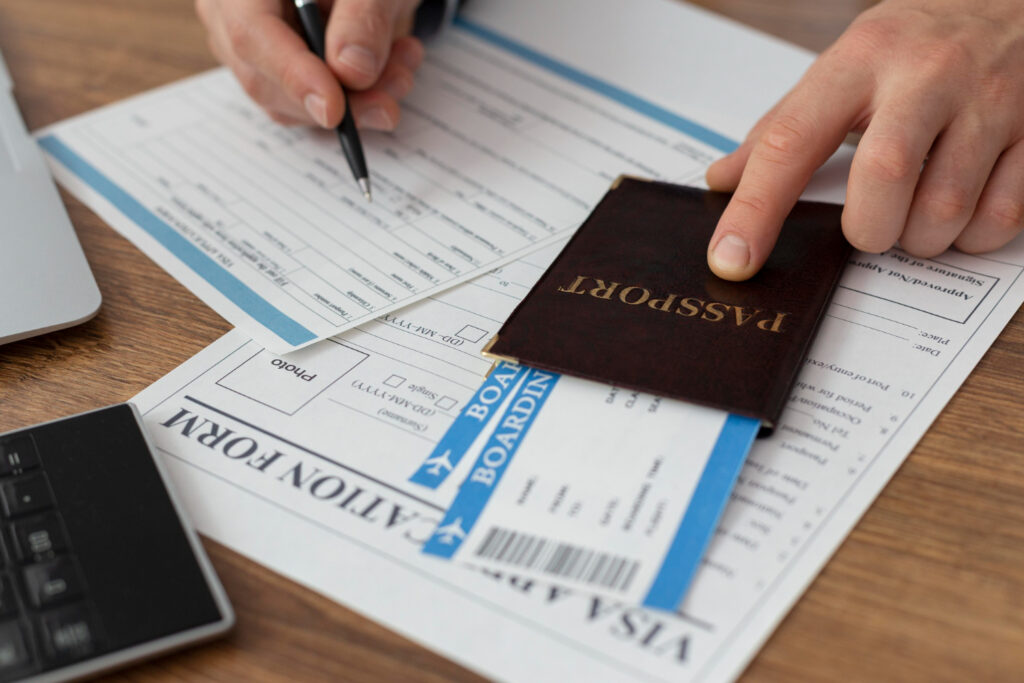Essential Documents for International Travel

Traveling internationally can be an exciting adventure, but it requires careful preparation, especially when it comes to gathering and organizing essential documents. Ensuring that you have the correct paperwork not only facilitates smooth passage through borders but also safeguards against potential issues that could disrupt your trip.
Table of Contents
1. Passport
Your passport is the key document for international travel, acting as proof of your identity and citizenship, and is necessary for entering most countries. Make sure your passport remains valid for at least six months past your intended return date, since this is a common entry requirement for many nations.
It’s also a good idea to make photocopies of your passport’s identification page and store them separately from the original. In case your passport is lost or stolen, having a copy can speed up the process of obtaining a replacement. You can also replace your lost passport with Urgent Passport Services Inc.
2. Visas
Depending on your destination, you may need a visa in addition to your passport. A visa is an official authorization added to your passport that allows you to enter, stay in, and leave a country. Visa requirements vary widely depending on your nationality and the country you’re visiting.
Research visa requirements well in advance of your trip, as some visas can take weeks or even months to obtain. Some countries offer electronic visas (e-Visas), which can be applied for online, while others require you to apply at an embassy or consulate. Ensure you understand the type of visa you need—whether it’s a tourist visa, business visa, or transit visa—and the length of time you’re allowed to stay in the country.
3. Flight Tickets and Travel Itinerary
Your flight tickets and a detailed travel itinerary are essential for both practical and immigration purposes. Many countries require proof of onward travel or a return ticket as a condition for entry, so it’s important to have your flight details readily available.
It’s also useful to have a copy of your travel itinerary, which includes details such as accommodation bookings, planned activities, and transportation arrangements. This not only helps you stay organized but may also be required by immigration officers to demonstrate the purpose of your visit and your plans while in the country.
4. Travel Insurance
Travel insurance is an essential document for international travel, offering protection against unexpected incidents like medical emergencies, trip cancellations, lost baggage, and other travel-related mishaps. In certain countries, showing proof of travel insurance is compulsory for entry, especially if the policy covers COVID-19 or other specific health risks.
Make sure to bring a copy of your travel insurance policy, complete with the policy number, emergency contacts, and coverage details. It’s also prudent to review your policy prior to your departure to confirm that it includes provisions for activities you intend to participate in, such as adventure sports or rental car insurance.
5. Health Documentation
Depending on your destination, you may need specific health documentation. This could include vaccination certificates, such as proof of yellow fever vaccination for entry into certain countries, or a COVID-19 vaccination card. Some countries may also require a negative COVID-19 test result taken within a specified period before departure.
Carry your health documentation in both physical and digital formats, if possible. Additionally, if you have a medical condition requiring medication, bring your doctor’s letter explaining your condition and the prescribed medications. This can help avoid issues at customs or if you need medical assistance abroad.
6. International Driving Permit (IDP) and Driver’s License
If you’re considering driving in a foreign country, you might need an International Driving Permit (IDP) along with your regular driver’s license. The IDP translates your license into multiple languages and is accepted in over 150 countries. Be sure to check the driving laws of the country you are visiting to see if an IDP is necessary.
Even if an IDP is not required, you should always carry your domestic driver’s license. In some countries, you may also need to provide proof of auto insurance if you’re renting a vehicle.
7. Credit Cards, Cash, and Financial Documentation
Bring along at least one credit card that is accepted internationally, and inform your bank of your travel itinerary to prevent your card from being flagged for suspicious activity. It’s also advisable to bring some local currency or a widely accepted currency like U.S. dollars or euros for immediate expenses upon arrival.
Keep copies of your credit card numbers and bank contact information in a separate, secure location. This will be crucial if your cards are lost or stolen, enabling you to quickly report the loss and request replacements.
8. Emergency Contacts and Embassy Information
Prepare a list of emergency contacts, including family members, your home country’s embassy or consulate in the destination country, and any relevant local contacts. Having embassy information on hand is particularly important in case of legal issues, emergencies, or if you lose your passport.
Conclusion
Properly preparing and organizing your essential documents before an international trip is crucial to ensuring a smooth and stress-free travel experience. By having your passport, visas, flight tickets, travel insurance, health documentation, and other important paperwork in order, you’ll be well-equipped to handle any situations that arise during your travels. Ensure you have digital backups of all your important documents and stay informed about the specific entry requirements of your destination country to prevent any unexpected issues at the border.
